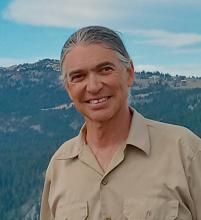You are here

AI systems such as ChatGPT (https://chatgptonline.net/) use language in amazingly human ways. They offer wide-ranging, plausible, coherent, and nearly instant responses to all kinds of queries and instructions. Ask ChatGPT for suggestions about attracting customers to a new café, and it provides a list of very sensible ones. Ask it to write a sonnet in French about dogs hunting squirrels and it pops one out. But, how much can we trust what they say (https://www.niemanlab.org/2022/12/chatgpt-and-the-future-of-trust/)? Which applications are fair, transparent, and ethical (https://www.nbcnews.com/tech/internet/chatgpt-ai-experiment-mental-healt...)? How do our ideas about trust, authorship, authoritative sources, and deception adjust to this way of producing written – and, for that matter, spoken – material? And in the end, how much do we or should we care?
Jefferson Center member, Dr. Tony Davis, will facilitate a conversation about the effects and implications of such systems, focusing on education and critical thinking (https://www.theguardian.com/technology/2022/dec/04/ai-bot-chatgpt-stuns-...). The session will begin by showing some of ChatGPT’s capabilities in action (https://languagelog.ldc.upenn.edu/nll/?p=57275). Then, the discussion will turn to broader issues. Is this the end of student essays (https://slate.com/technology/2022/12/chatgpt-college-essay-plagiarism.html)? How hard is it to detect chatGPT's writing, and to regulate its use? What kinds of skills become less relevant when students use this technology in their written work? Are fears about losing crucial cognitive abilities justified? How do the prospects of writing by machine compare with other circumstances when we’ve had to deal with automation and technological change, such as smartphones, calculators, the printing press, or the invention of writing itself?
Dr. Davis received his Ph.D. in linguistics from Stanford and his career since then has focused primarily on computational linguistics and knowledge representation including audio/video search and retrieval and computer-assisted medical coding. He taught courses on computational linguistics and information retrieval at Georgetown University for 15 years.
Please note both the different date and venue. This salon will take place in the theater at Science Works, 1500 E Main St, Ashland, OR 97520.
For more information, contact Tony Davis at tonydavis0@gmail.com.
- Log in to post comments
